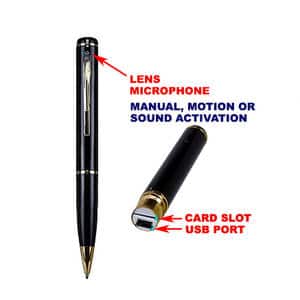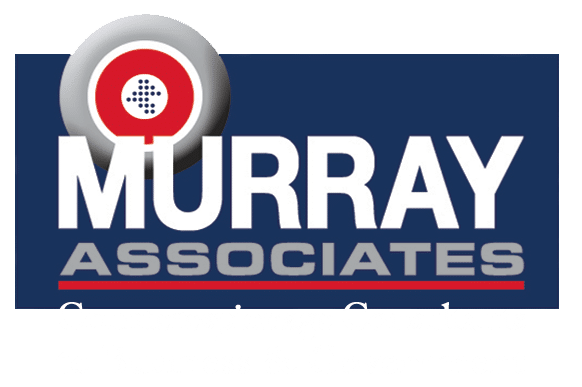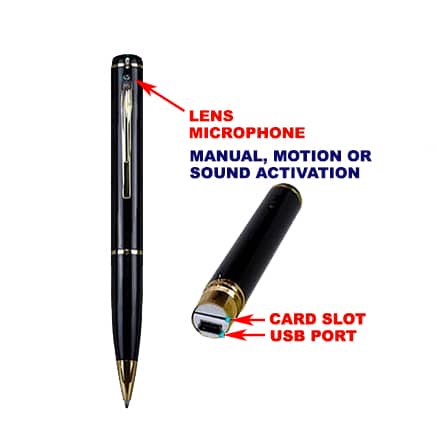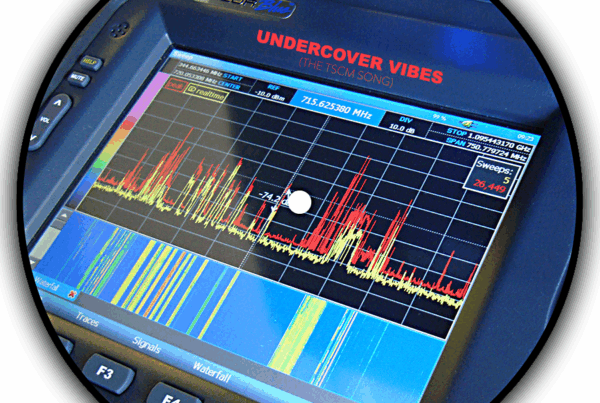
Spy pen commonly used for surreptitious workplace recording.
Workplace recording threats:
• Employees
• Contractors
• Visitors
• Economic Espionage Spies
Some of their workplace recording tools include: smartphones, fake key fobs, and mini voice recorders disguised as USB sticks, covert video cameras, and wireless microphones.
The Top Four Surreptitious Workplace Recording Motives
- Industrial Espionage – “The theft of trade secrets by the removal, copying or recording of confidential or valuable information,” as defined by Investopedia.
- HR Issues – One-third of employees who visit the U.S. Equal Employment Opportunity Commission (EEOC) office to file discrimination complaints bring secretly made recordings. Katrina Patrick, a lawyer who represents aggrieved employees, says that more than 50 percent of the people who come to her office bring digital evidence. Some cases are settled for six-figure sums. One case was in its eighth year last time we checked. Either way, it’s very expensive.
- Blackmail – Recordings force outcomes. In one reported case, three employees bugged their boss for a promotion, literally. They hid a recorder in his office and tried to blackmail him with the video footage.
- Sex – Covert video spy cameras, or spycams, placed in areas where there is an expectation of privacy (locker-rooms, business provided restrooms, etc.). The problem is epidemic. Inspecting these areas is now a regular part of our client’s due diligence inspections.
Tips for Management
- Assume your discussions are being recorded.
- Before proceeding, ask if they are recording.
- Be professional. If you would not say it in a courtroom, don’t say it.
- Red Flag – When an employee tries to recreate a previous conversation with you.
- Have an independent sweep team conduct periodic due diligence debugging inspections.
- Train your staff to spot covert spycams with our on-line video training course.
Create a Workplace Recording Policy
Your organization may already have a written Workplace Recording Policy. If you do, dust it off and bring it up-to-date. If not, create one. Keep these points in mind…
- Clearly define the purpose of your Workplace Recording Policy…
– to encourage an atmosphere for honest and open workplace communications,
– to protect trade secrets, confidential and proprietary information,
– to protect employee communications privacy.
– to protect employee personal privacy against covert video cameras in restrooms, showers, changing rooms, etc. - List the types of recordings you prohibit. (audio, video, data)
- Make it clear the policy covers everything business-related; on and off premises.
- List who may, and under what conditions, create exemptions to the policy.
- Define specific conditions where recording is permissible, e.g.
– as part of the manufacturing process,
– customer service quality control,
– when specifically, relevant to Section 7 of the National Labor Relations Act.
Having a written Workplace Recording Policy accomplishes several things:
- It has an immense deterrence value, especially with spycam’ers. Voyeurs are basically risk-adverse.
- It provides discipline and termination leverage, should someone not be deterred.
- It also provides your company with a strong defense in court, and in arbitration hearings.
If you would like some help creating a Workplace Recording Policy, contact us, we would be pleased to help you. We can also perform a Technical Surveillance Countermeasures (TSCM) bug sweep to help assure your privacy.
###
Murray Associates is an independent security consulting firm, providing eavesdropping detection and counterespionage services to business, government and at-risk individuals.
Headquartered in the New York metropolitan area, a Murray Associates team can assist you quickly, anywhere in the United States, and internationally.
EXTRAS:
• More security tips, spy and privacy news at spybusters.blogspot.com. Be sure to sign up for the free email updates.
• Concerned about Spy Cameras? Learn how to detect them.




